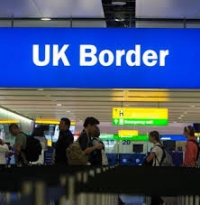
Migration figures have been overstated says a recent report
EU citizens with jobs have similar access to the benefits as UK citizens. For jobseekers or people not working, the rules for determining eligibility can be complex and vary depending on the type of benefit in question.
In February 2016 the UK and the EU agreed a set of proposals to restrict newly arriving EEA citizens’ access to in-work benefits if the UK votes to remain in the EU. The proposals also include the ability to reduce child benefit payments in respect of children living in other EEA countries, who currently make up about 0.3% of child benefit claims.
EU migrants are less likely to claim out-of-work benefits but more likely to claim in-work benefits like tax credits, compared to the UK born.
Most EU tax credit recipients in the UK did not arrive within the past four years and thus would not have been affected by restrictions on access to in-work benefits if they had been in place in recent years.
Available data suggest that roughly 10-20% of recently arrived EU adults were receiving tax credits in early 2014.
The government’s November 2015 estimate of ‘about 40%’ of recently arrived EEA migrants supported by benefits is higher than other available estimates for various reasons, including the fact that it counts children as benefits recipients.
More than half of EEA born adults who reported receiving tax credits in 2015 were working full time, and around 90% had dependent children (despite less than half of EEA born adults overall having children).
The impacts of proposed benefits restrictions are likely to vary widely and be concentrated on a small share of families with children - particularly minimum-wage workers with children and those in families without two-full time earners.
If the National Living Wage increases families’ incomes, this will reduce in-work benefits entitlements even without restrictions on welfare eligibility.
Because the impacts of in-work benefits restrictions are concentrated on a small share of newly arriving families, it is unlikely that they would lead to a large reduction in EU migration to the UK.
Leave a comment
Make sure you enter all the required information, indicated by an asterisk (*). HTML code is not allowed.
Join
FREE
Here










